Table of Contents
Domestic Politics and International Politics:
All of us are involved in some way or the other, in politics. Now, because of the prevailing conditions in the world, almost everyone is agreed, to some extent, that it is important to build a greater knowledge of the relations between peoples and nations; just what kind of knowledge is required is not very clear. However, one reasonable procedure for dealing with this difficulty is to make an inventory of the ideas that throw some light on the subject of politics.
Politics has been defined in a number of ways. Writers differ greatly on the definition of the subject. It seems quite natural because, to quote Stanley Hoffman, “How could one agree once and for all upon the definition of a field whose scope is in constant flux, indeed a field whose fluctuation is one of its principal characteristics? As such politics cannot be defined in any generally accepted way.
The term “Politics” is derived from the Greek word “polis” which means a city. To the ancient Greeks, politics was a sort of knowledge which is concerning the affairs of a city. In fact, ancient Greek politics was the science of municipal government. The political thinkers were local.
Today, the term politics is used in a broader sense. As Prof. Gilchrist says the term politics nowadays refers to the current problems of government which often as not are more economic in character than political in a scientific sense.
Everything in politics whether domestic or international flows from the fact that people have needs and wants. To satisfy all these needs and wants people to come into contact with each other. These contacts lead to the formation of groups. These groups follow certain policies and do certain actions to satisfy their needs and wants. Politics arises from the very existence of groups and the disagreements among them for the system under which their needs and wants can be fulfilled. Quincy Wright defines politics as “the act of influencing, manipulating, or controlling major groups so as to advance the purposes of some against the position of others”. As such politics include three things: the existence of groups, disagreement between groups, and the efforts of some to control the actions of others. Politics, then, is a phenomenon of groups, disagreement, and group action. Politics, however, cannot exist in a state of complete disagreement. Harmony between the groups is necessary. The purpose of one group trying to control the actions of other group or groups in its favour is to alter this type of relationship in its own favour. The ability to control the policies and actions of other groups is, generally speaking, called power. As such politics involve power.
Politics in relations between people of a state is domestic politics. Politics in relationships between nations is international politics. In International politics, groups ae nations and their needs and wants are called interests and disagreements among groups are called conflicts. The elements of power remain the same. International Politics, thus, includes interest or national interest, conflict and power. The conflict has great significance in International Politics because if it is not there, national interest and power have no function. In this sense, international politics can be described as the relations among independent political communities in which some element of conflict of interest is present. However, not every nation is hostile to each other. Nations whose interests are harmonious are likely to have some sort of cooperation. As such International Politics involves both cooperation and conflict. But conflict occupies greater importance in International Politics than in domestic politics because cooperation itself is the result of the conflict.
Difference Between National or Domestic Politics and International Politics:
Domestic or national politics and international politics are distinguished from each other. Their points of difference would make the meaning and nature of domestic and international politics also clear. The points of difference between the two are as under-
(1) National law is the basis of domestic politics whereas international law is the basis of international politics.
(2) The main end of international politics is the existence of groups that participate in it, that is the existence of a sovereign state is the supreme end of international politics because the sovereign state is always threatened by others. In domestic politics, on the contrary, the threat is not directly to the existence of sovereign politics.
(3) Also in the mode of operation both differ. Domestic politics is thought of in terms of persuasion and peaceful legislation and administration. But international politics is understood in terms of war and threat of war.
(4) Government exists within domestic politics but in international politics, no such type of government exists.
(5) In domestic politics even a layman participates but in international politics, an ordinary man has no interest.
(6) In domestic politics the actors (individuals) are under the coercive authority of the state but in international politics, the sovereign states are governed by a weak law.
Points of Similarities Domestic Politics and International Politics:
Besides the above differences, there are many points of similarities which can be discussed as under-
(1) In domestic politics and international politics, power is an important aspect through which they both fulfil their desires and wants.
(2) Both have adopted psychological methods to seek power.
(3) Both cluster around the interest.
(4) Civil war is related to national politics whereas international war is related to international politics.
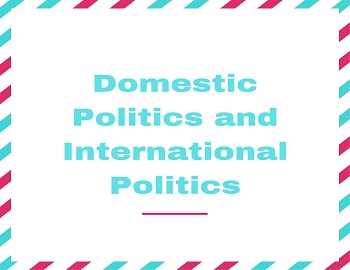
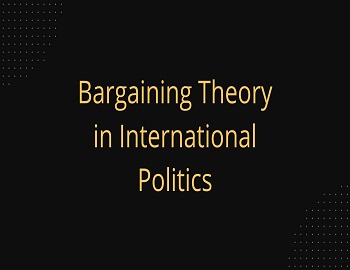

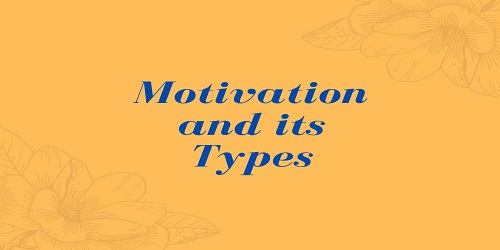
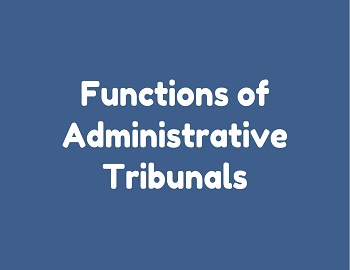
![President of India [Article 52-62]- GK 6 President of India](https://gkscientist.com/wp-content/uploads/2021/05/President-of-India-Article-52-62.jpg)

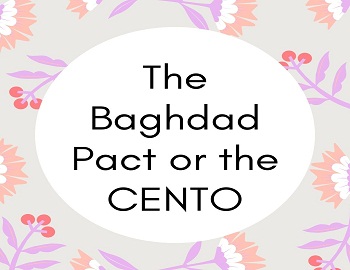

Comments (No)